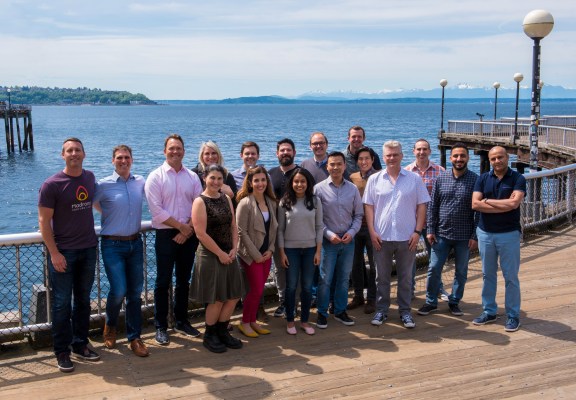Madrona Venture Labs raises $11M to build companies from the ground up – TechCrunch - 4 minutes read

In regions where would-be entrepreneurs need a little more support and encouragement before they’ll quit their day job, the startup studio model is taking off.
In Seattle, one of its oldest and most-celebrated venture capital firms, Madrona Venture Group, has raised $11.3 million for its studio, Madrona Venture Labs (MVL). The investment brings the studio’s total funding to $20 million.
Traditional venture capital funds invite founders to pitch their business idea to a line-up of partners. Sometimes that’s a founder with an idea looking for seed capital, other times it’s a more mature company looking to scale. When it comes to startup studios, the partners themselves craft startup ideas internally, recruiting entrepreneurs to lead the projects, then building them from the ground up within their own safe, protective walls. After a project passes the studio’s litmus test, i.e. shows proof of traction, product-market fit and more, it’s spun out with funding from Madrona and other VCs within its large and growing investor network.
For aspiring entrepreneurs deterred by the risk factors inherent to building venture-backed startups, it’s a highly desirable route. In the Pacific Northwest, where MVL focuses its efforts, it’s a chance to lure Microsoft and Amazon employees into the world of entrepreneurship.
“We want to be an onboard for founders in our market,” MVL managing director Mike Fridgen, who previously founded the eBay-acquired business Decide.com, tells TechCrunch. “In Seattle, everyone isn’t a co-founder or an angel investor. Not everyone has been at a startup. A lot of people coming here are coming to work at Amazon, Microsoft or one of the larger satellite offices like Facebook. We want to help them fast-track learning, fundraising and everything else that comes with launching a successful company.”
Fridgen, MVL managing director Ben Elowitz, who co-founded the online jewelry marketplace Blue Nile and chief technology officer Jay Bartot, the co-founder of Hulu-acquired Vhoto, lead Madrona’s studio effort.
The investment in MVL comes in part from its parent company, Madrona, and for the first time, outside investors have acquired stakes in the practice. Alpha Edison, West River Group, Founder’s Co-op partner Rudy Gadre, Zillow co-founder Spencer Rascoff, former GoDaddy CEO Blake Irving, Trinity Ventures venture partner Gus Tai, TCV venture partner Erik Blachford and others participated.
With $1.6 billion in assets under management, Madrona is known for investments in Seattle bigwigs like Smartsheet, Rover and Redfin. The firm, which recently closed on another $100 million for an acceleration fund that will expand its geographic reach beyond the Pacific Northwest, launched its startup studio in 2014. Since then, it’s spun-out seven companies with an aggregate valuation of $140 million.
“There are some 85 VCs that have $300 million-plus funds,” Fridgen said. “In Seattle, we have two of the most valuable companies in the world and we have just one [big fund], Madrona; it’s the center of gravity for Seattle technology innovation.”
Companies created within MVL include Spruce Up, an AI-powered personal shopping platform, and Domicile, a luxury apartment rental service geared toward business travelers. Domicile was co-founded by Ross Saario, who spent the three years ahead of launching the startup as a general manager at Amazon. The company recently raised a $5 million round, while Spruce Up, co-founded by serial founder Mia Lewin, closed a $3 million round in May.
Other spin-outs include MightyAI, which was valued at $71 million in 2017; Nordstrom-acquired MessageYes, Chatitive and Rep the Squad. The latter, a jersey rental business, was a failure, shutting down in 2018 after failing to land necessary investment, according to GeekWire.
MVL’s latest fundraise will be used to invest in operations. Though MVL does provide its spin-outs with some capital, between $100,000 to $200,000 Fridgen said, it takes a back seat when it comes time to raise outside capital and doesn’t serve as the lead investor in deals.